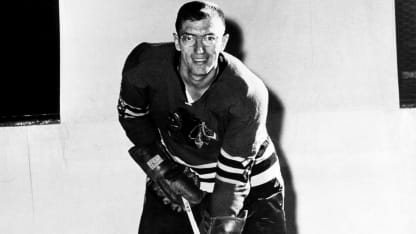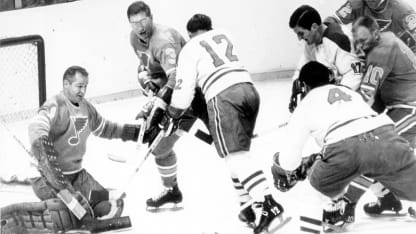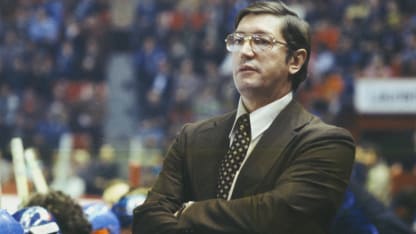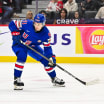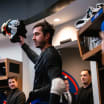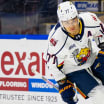As far as I'm concerned, Al Arbour was the best coach there ever was -- Goalie Glenn (Chico) Resch who played under Arbour with the Isles.
After watching the Islanders upset the Rangers in Round One of the 1975 playoffs for The Stanley Cup, pundits spent plenty of time analyzing why -- and how -- such a surprise result could have taken place.
One answer was what would become known as "The Usual Suspects." They comprised a vibrant group that would grow in talent and popularity over the years.Heroes were many, starting with the Glenn (Chico) Resch-Bill Smith goaltending tandem and on to sophomore Denis Potvin's emergence as a defensive stalwart as well as major offensive contributions from Jude Drouin, J.P. Parise and Clark Gillies, to name a few. But the Islanders still required a podium leader; someone who blended brains with a bold -- yet avuncular - personality. He would, of course, be the man behind the bench.
Orchestrating this symphony of talents was the bespectacled coach, Al Arbour, who began his working career in an unlikely place, a Northern Ontario mine shaft.
This was in Sudbury, Ontario during the Great Depression of the 1930s. It was a time when jobs were scarce and if a father wanted to put food on the table, he had to take whatever work he could get; with a little help from his son, if that were possible.
Alger Arbour was that son. He was born on November 1, 1932, attended Catholic school and -- in another time -- might well have gone on to university studies. But there was no money in the Arbour household for that.
Al was more interested in playing hockey and helping his parents stay financially afloat, so he did what came naturally up in that mineral-rich section of the North Country. He found a job with the same company that employed his father. Helping his dad as an underground nickel smelter with the Sudbury Frood Mines was not exactly a romantic job. But when young Al emerged from the shaft he'd head to the nearest ice rink and hone his hockey skills to sharpness. That's what he really loved; hockey.

